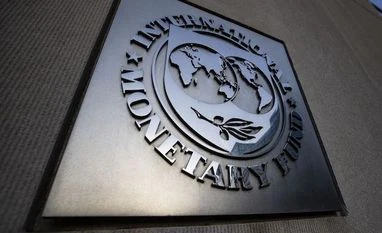The International Monetary Fund has urged crisis-hit Sri Lanka to decide on debt restructuring, including with China, by October this year in order to obtain the applied bailout fund of USD 2.9 bn from the IMF, Daily Mirror reported.
According to Daily Mirror, China's delaying tactics clearly indicate that without their assistance, an IMF bailout would be impossible for Sri Lanka, Daily Mirror reported.
Daily Mirror is a daily English-language newspaper published in Colombo, Sri Lanka, by Wijeya Newspapers.
When the IMF team agreed to a bailout for Sri Lanka, President Ranil Wickremesinghe endorsed that Sri Lanka is no longer deemed bankrupt by the world.
China's role as Sri Lanka's main creditor has drawn global attention, as the delay caused by China in obtaining the IMF bailout is being closely monitored and questioned. Similarly, China, being a major creditor of Sri Lanka, closely observes other countries' actions regarding an IMF bailout for Sri Lanka, Daily Mirror reported.
The current IMF team in Colombo anticipates that the restructuring process will be finalized during the first review of the program, scheduled for September or October this year. When the media questioned what would be the fate if the government does not finalise it before October, the IMF team said they have 'faith' and should not be hypothetical about it.
Additionally, during a recent visit to Sri Lanka, Afreen Akhter, the Deputy Assistant Secretary of the US Bureau of South and Central Asian Affairs (SCA), emphasized the importance of China's formal participation in the common framework for creditor talks established by India and the Paris Club. This framework aims to facilitate Sri Lanka's debt restructuring.
More From This Section
Krishna Srinivasan, Director of the Asia and Pacific Department, IMF, said that the Sri Lankan Government is making good faith efforts and negotiating with all creditors, private and official creditors.
He said, "You may have seen, three countries India, Japan, and the Paris Club team together to form a credit committee. And China decided to be an observer to this group. So, that's a process development."
Bangladesh, Maldives, Nepal, and Sri Lanka showcase the various engagement approaches employed by China in the multidimensional South Asian region. These countries' encounters with Chinese investments and influence provide valuable insights for debt-ridden nations like Sri Lanka, while also utilizing influencers to highlight China as a valuable development partner throughout the region, Daily Mirror reported.
Vulnerable countries like Sri Lanka, with significant disparities in Chinese activism and local capacity, face unique challenges. In these nations, the methods and impact of China's activities are not well comprehended by local experts and elites. Additionally, policy approaches frequently rely on Western solutions without considering local realities.
China's influence in Sri Lanka has become so dominant that even though China is buying additional time to restructure its debt, a crucial step for securing the long-awaited IMF bailout, there appears to be no response from the desperate people of the island on China's inaction.
China's media influence in Sri Lanka grew from 2019 to 2021, with a focus on targeting younger Sri Lankans through pro-Beijing influencers on social media. Agreements with influential individuals and think tanks also influenced media discussions.
The other reasons are its close ties with the elites like the Rajapaksas who have favoured the Chinese presence and also gaining additional payments for approving their projects, Daily Mirror reported.
Wimal Weerawansa and other politicians have strongly criticized the United States, which happens to be the largest buyer of Sri Lankan apparel and a significant donor country. Julie Chung, the US Ambassador to Sri Lanka, commented on the bailout package, stating that Sri Lanka should treat all donor countries equally and ensure a level playing field for everyone, rather than prioritizing one country over another, Daily Mirror reported.
He was one of the guests at the welcoming ceremony of the controversial Chinese vessel research vessel 'Yuan Wang 5' at the Hambantota Port last August.
)